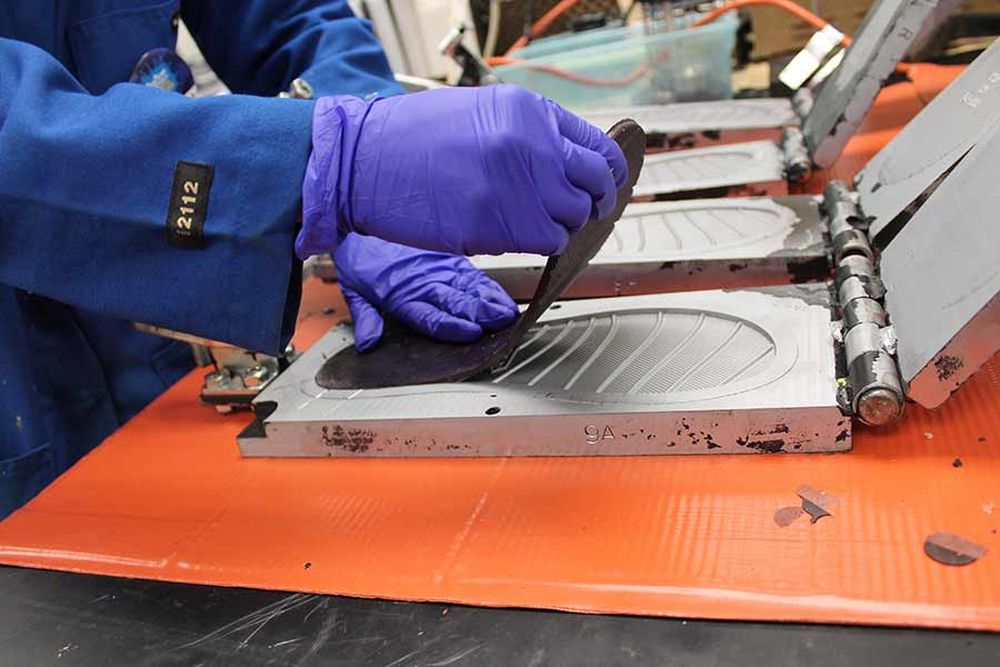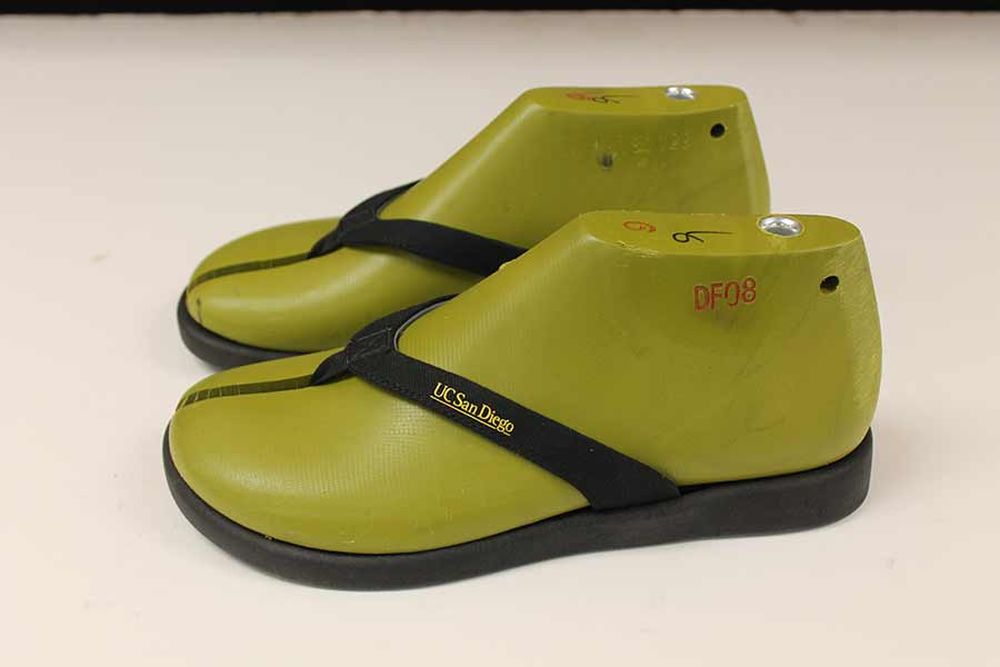Researchers Develop Algae-Based Biodegradable Flip Flops
The petroleum polymers used in the creation of flip flops are essential to the durability and comfort of the famous footwear, but they are a huge contributor to the plastic pollution crisis. The material takes a long time to break down once it has served its purpose, polluting the environment for years to come. Aiming to tackle this problem, a team at the University of California San Diego has developed algae-based flip flops that are completely biodegradable.

Algae-based flip flops are entirely biodegradable | Image: UCSD News
The pair of algae-based flip flops is claimed to make the grade for commercial footwear but degrade in the environment in just 16 weeks. This new invention has come to fruition with a new type of polyurethane foam made from algae oil and years of experimentation, while the tea, continually tweaked the combination of natural and synthetic materials.
The goal was to create a biodegradable pair of flip flops that are durable and comfortable. The research was published in the journal Bioresource Technology Reports.
The study author Stephen Mayfield said,
The paper shows that we have commercial-quality foams that biodegrade in the natural environment. After hundreds of formulations, we finally achieved one that met commercial specifications. These foams are 52 percent biocontent – eventually we’ll get to 100 percent.
The commercial-grade foam meets the standards required of midsole shoes and the foot-bed of flip flops while having the capability of degrading in the natural environment within four months.

Algae-based flip flops | Image: UCSD News
The team collaborated with material science startup Algenesis to transform the algae-based foam into flip flops and study the duration in which the material broke down. The team tracked the molecules, the material shed throughout this process to determine if it had any toxic effects on the soil. The researchers also identified the organisms driving the process.
Mayfield said the team took samples of the enzymes from the organisms degrading the foam. It was discovered that they could be used to depolymerize these polyurethane products. Then, the team could isolate the depolymerized products and use those to synthesize new polyurethane monomers.
This invention has not only opened the door to eco-friendly flip flops but has also paved the way for a new kind of plastic product, which is entirely recyclable.


